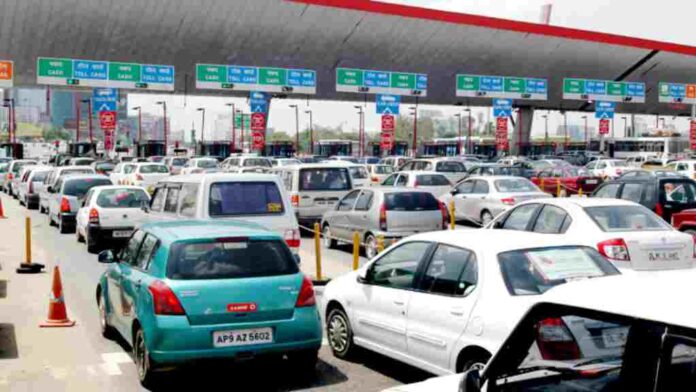Roads are the lifeline of development of any country. Roads and highways are the property of any country. That’s why their maintenance is also very important. The way we take care of the other assets of the country, similarly we take care of the roads and highways. But for the maintenance of the country’s highways and roads, we have to invest more and more property in it.
Roads also become important because through these roads people can easily move from one city to another or from one city to another. Whenever you go by road, you have to stop at the toll tax coming on the way. Proceeding is allowed only after paying the toll tax. Now what are these toll taxes, why are they charged and how are their rates determined?
When did toll tax start in India?
For the first time in India, toll tax was introduced in 1956. It was started by THE NATIONAL HIGHWAYS ACT, 1956 ACT NO. 48 OF 1956 [11th September, 1956.]. Toll tax is also called toll in common language. This is a type of fee that any vehicle driver has to pay while crossing the Interstate Expressway, National or State Highway. These highways are also called toll roads and their entire management is done by the National Highway Authority of India (NHAI). The distance between two toll booths is usually 60 km.
Why is toll tax charged?
Toll tax is used in the maintenance and construction of roads etc. Through this fee, the government plans and maintains highways and expressways.
Is road tax and toll tax same?
If this question also comes in your mind, then know that both road tax and toll tax are different. Road tax is collected by the RTO when you use different roads in the same state. While toll tax is charged for using the Inter State Highway.
NHAI has also provided the facility to pay toll tax easily and quickly using technology. Its name is FASTag, it is fixed on the inside of the vehicle’s mirror. With this, the amount of toll is taken directly from the vehicle owner’s account and he is allowed to cross the toll without waiting.
How is the rate of toll tax decided?
The rate of toll tax depends on many things. This includes the purchase price of the vehicle, engine capacity, seating capacity etc. Apart from this, the rate of toll tax to be collected changes even if the distance of the highway is more or less 60 km. In the month of April this year, the government had increased the rates of toll tax. According to this, the toll tax of light vehicles was increased by Rs 10 and the toll tax of heavy vehicles was increased by Rs 65.
Which 25 people do not have to pay toll tax?
Toll tax or toll is the fee that motorists have to pay while crossing certain interstate expressways, tunnels, bridges and other national and state highways. These roads are called toll roads and are under the control of the National Highways Authority of India (NHAI).
Toll tax is used for road construction and maintenance. Therefore, it covers the cost of newly constructed toll roads by levying toll tax. Government of India has introduced FASTags which use RFID (Radio Frequency Identification) technology for cashless toll tax payment.
However, according to the National Informatics Center (NIC), there is a list of people and vehicles exempted from paying toll tax as per Rule 11 of the National Highway Fee (Determination of Rates and Collection) Rules, 2008.
– President of India
– Vice President of India
– prime minister of India
– governor of a state
– Chief Justice of India
– Speaker of the Lok Sabha
-Union Cabinet Minister
-Chief Minister of a State
– Supreme Court judge
– Union Minister of State
– Lieutenant Governor of a Union Territory
-Chief of staff who holds the rank of full general or equivalent
– Chairman of the Legislative Council of a State
-Speaker of the Legislative Assembly of a State
– Chief Justice of the High Court
– High Court Judge
– Member of Parliament
-Army Commanders of the Chief of the Army Staff and equivalents in other services
-Chief Secretary of a State Government within the concerned State
– Secretary, Government of India
– Council of States Secretary
– Secretary, Lok Sabha
– Foreign dignitaries on state visits
Members of the Legislative Assembly of a State and members of the Legislative Council of a State within their respective States, whether or not he produces his identity card issued by the concerned Legislature of the State.
A person awarded the Param Vir Chakra, Ashoka Chakra, Maha Vir Chakra, Kirti Chakra, Vir Chakra, and Shaurya Chakra, if the recipient of such award produces his/her photo identity card duly attested by the appropriate or competent authority for such award.
However, there are other categories which are exempted from toll tax. In which the armed forces of the Center and the State in uniform. It includes paramilitary forces and police, an executive magistrate, fire department or organization, use as an ambulance, use as a funeral van, mechanical vehicle specially designed and manufactured for use by a person suffering from a physical disability .


